A business checking account is critical to helping your business operate efficiently. Before you can open a business bank account of any kind, however, you need to provide certain documentation to the bank about the business and your authority to conduct financial transactions on behalf of the business. Once you have the necessary documentation, the first account you will probably need is a checking account.
Why Should You Open A Business Checking Account?
One of the most important reasons to have a business checking account is to keep your business’s assets entirely separate from your personal assets. Being disciplined about keeping your personal assets and liabilities separate from those of your business is vital to putting your business on sound footing. Having separate checking accounts will go a long way in protecting you against being personally liable for your business debts.
 Also, keeping your business and personal transactions separate is important for tax purposes. If you mix your business and personal activities, you will have a difficult time filing accurate tax returns. Moreover, a separate business checking account will be important if you have to prove to the IRS that the business is not merely a hobby.
Also, keeping your business and personal transactions separate is important for tax purposes. If you mix your business and personal activities, you will have a difficult time filing accurate tax returns. Moreover, a separate business checking account will be important if you have to prove to the IRS that the business is not merely a hobby.
Once you have a business checking account, you can also have access to many other banking services that are designed to help businesses prosper and easily manage their finances. Depending on the bank, for example, business banking services can include:
Bank Financing. When you need business capital, your bank can provide financing on credit terms tailored to your business’s needs. Bank financing provides funds to support business expansion strategies, equipment purchases, or to cover certain operating expenses.
Cash and Payment Management. Cash management services offered by your bank help your business manage its receivables, payables, cash on hand, and liquidity. Using these services often allows a business to keep its costs lower while having more cash on hand.
Automatic Money Transfers. Business banks will automatically transfer money out of your company’s idle checking account and into its interest-bearing savings accounts.
What Documents Are Needed For Opening A Business Bank Account
 When you open your business checking account, your bank will need documentation to show that the business is authentic and that you and any other officers or directors of the business approve of a bank account being opened in the business name.
When you open your business checking account, your bank will need documentation to show that the business is authentic and that you and any other officers or directors of the business approve of a bank account being opened in the business name.
The owner of the account will be your business (not you individually). The specific documentation needed for opening a business bank account depends on the organizational structure of the company and the nature of its business. In nearly every case, you will need:
- Your Social Security Number. If your business is a sole proprietorship, the bank will accept your social security number to verify your identity and authority to act on behalf of your business.
- Employer Identification Number (EIN). If you are doing business as a corporation, partnership, or other entity besides a sole proprietorship, your business needs an EIN number to open a business bank account of any kind. An EIN is a unique number issued to businesses located in the United States by the IRS for tax purposes. The EIN gives your business a tax status that is independent of your personal social security number. If you have not already applied to the IRS for an EIN number, you need to do it before you establish a business account. You can apply online, and it costs nothing to apply.
- Personal Picture Identification. You need to be able to show the bank that you are an officer or owner of the business. Valid forms of personal identification include a driver’s license, state-issued identification, or passport.
- DBA Name Registration. If your business will be operating under a name other than its legal name, you will need to file for a fictitious business name with your state’s secretary of state or equivalent. For example, a specialty grocery store that is organized as an LLC under the name “Sophie’s Mediterranean Grocery Store, LLC” may operate its store under the name “Sophie’s Grocery”. In such a case, a fictitious business name registration must be filed. Your bank will want a copy of your DBA registration documents.
- Business Formation and Operational Documents. If your business entity is a partnership, LLC, or corporation, you or your attorney created documents that you filed with your state’s secretary of state. Your bank will need a copy of the organizational documents filed with your state. Also, if your business is a partnership, you will need a copy of the partnership agreement. If it is a corporation, you will need the bylaws, and if it is an LLC, you will need the operating agreement.
- Business License. A business license is issued by a state or local government body. Depending on the nature of your business, you may need a business license to conduct your business. Check with your local government and determine whether your business needs a business license. If so, you will need it to open your business bank account.
 A checking account may not be the only business account you need. Your banker can help you determine what other types of accounts and business banking services could help your business thrive.
A checking account may not be the only business account you need. Your banker can help you determine what other types of accounts and business banking services could help your business thrive.
What Fees Would a Business Checking Account Entail?
When opening your checking account, you should explain how your business operates to your banker to help make sure you obtain the best account for your business. Some business checking accounts are free, while others have a minimum balance requirement and/or limitations on the frequency of transactions.
Some business checking accounts have limitations on the amount of cash an owner can deposit, withdraw, or transact within a defined period. If your business operates mostly online and handles very little cash, you may be able to get an account with no fees and no minimum balance requirements, but the account probably has limitations on the number of transactions. Exceeding those limitations will cost additional fees.
Before you open an account, make sure you know about any limits and potential additional fees for exceeding them.
Speak to the Business Banking Experts at FVCbank for more information
A business checking account is a good way to get your business operating efficiently. Whether you are a new business customer or you are looking for better business banking solutions, you need to contact the business bankers at FVCbank. They offer a range of business checking accounts at competitive rates along with other business banking services.




